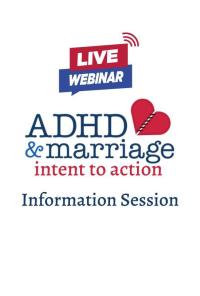Want to treat your ADHD with dietary changes? Here is what you need to know, from a recent review of multiple research studies on the topic.
One option - try specially designed multi-vitamins.
One of the most promising areas in using nutritional changes to improve ADHD symptoms is that of using ‘multi-ingredient, broad spectrum micronutrient supplements’ (BSM) designed specifically for mental as well as physical health. In other words, specially designed multi-vitamin and nutrient pills. One study done with adults showed effect sizes ranging from .46 - .67, which is comparable to Strattera. The supplement used in that study was EMPowerPlus, but other studies using other BSMs have also shown positive results. In order to get the benefit, you must keep taking the BSM, but the good news is in the EMPowerplus study, the 20% who continued for a year had reductions of symptoms into the non-clinical range (it might be that those people who were the ones getting the best results were also the ones who chose to continue taking the pills, so be wary of this finding.) In any event, it seems that breadth of ingredients is important when it comes to using supplements to help manage ADHD.
(Later addendum to this article) Additional research suggests that this option improves general health outcomes, which is always a good thing, but may not address ADHD symptoms in particular. As is often the case, research can be conflicting. So...if you can afford to try it, then why not - it won't hurt you. If you can't, then you might choose another, more scientifically validated option.
Going gluten-free helps 15% of those with ADHD.
Those with ADHD have a much higher incidence of celiac disease (15%) than does the general population (1%). For those who have undiagnosed Celiac, removing gluten from your diet can make a huge difference in diminishing symptoms. If you get a stomach ache when you drink beer, or find that many breads (or Chinese food) don’t agree with you, you might be in this category.
Omega 3 supplementation may help…or may not.
Research is mixed on whether omega 3 supplementation works, though a meta-analysis of studies on the topic demonstrated a link between low Omega 3 levels and having ADHD. Since the majority of Americans are low in Omega 3s, Omega 3 supplements won’t hurt you and may help a little. It’s also good for your heart health and brain function more generally. If you want to find out your Omega 3 status, you can get an at home kit for testing Omega-3 levels in your blood from Zone Labs for $75. NOTE: the caveat here is that fish oil is a blood thinner – so talk with your doctor before taking fish oil if you are on any medications that might thin your blood, bruise easily, or are planning surgery.
Eliminating food color additives may help a few people, but not most.
After Feingold introduced his elimination diet as a way to treat ADHD in 1975, a lot of research has been done into whether or not limiting the kinds of foods one eats might help diminish the expression of ADHD symptoms. After decades of debate, the research suggests that about 8% of children may benefit from the elimination of food color additives to which they are allergic, but at a very low effect size (ranging from .18 to .29 in research). So for most people, eliminating food colorings and narrowing your diet beyond healthy eating isn’t recommended, and may cause nutritional deficiencies, to boot.
Less alcohol is better, particularly if you are taking medications.
Both stimulants and anti-depressants don’t mix all that well with alcohol. The former sends very contrary signals to your body, which places stress on it. And alcohol is a depressant…which sort of misses the point. Yes, alcohol can calm the ADHD mind by deadening it somewhat, but there are better ways.
What about just eating a really good diet of whole foods?
It turns out there is research on this…and today’s farming methods produce foods that don’t have the same level of some important nutrients as those from, say, the 1940s. So much so, in fact that the researchers who wrote the report this post is based on noted “expression of (ADHD) symptoms could be the result of the combination of nutrient depletion with the genetics of someone who may have a higher need for nutrients for optimal brain functioning.” We know that ADHD is genetic, but also influenced by environmental factors. Nutrition may be one. Why not use this information to help you improve your health and, hopefully, better manage your symptoms?
Information for this blog post came from The Role of Diet and Nutrient Supplementation in the Treatment of ADHD, by Julia J. Rucklidge, Ph.D., and Jeanette M. Johnstone, Ph.D. in the Dec. ’16 issue of The ADHD Report, edited by Russell Barkley.
- MelissaOrlov's blog
- Log in or register to post comments







